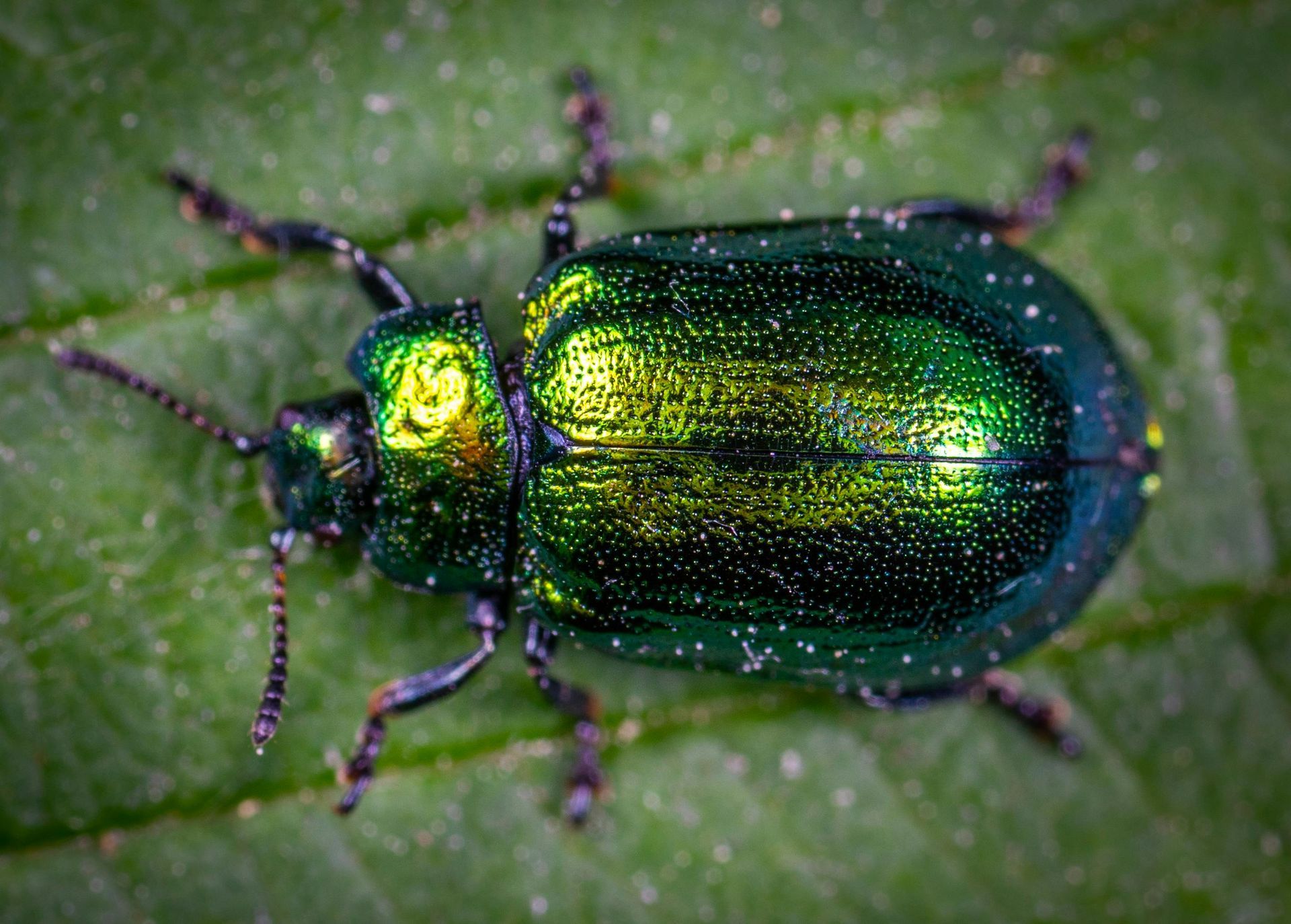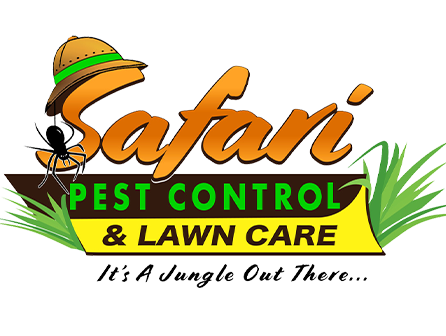EYED CLICK BEETLE TAMPA & PLANT CITY, FL
May 17, 2019

The Eyed Click Beetle, having two large false eyes or eye spots, tricks predators and startles gardeners. When it feels threatened it makes some acrobatic moves that are pretty impressive. It drops onto its back and hurls itself four times it's body length into the air, until it senses no more danger. The hinge action of the thorax snapping while performing this trick, causes a very loud click sound and is how it got the name Click Beetle.
The Eyed Click Beetles inhabit the eastern half of North America, and have been seen in Florida. The larvae, often called a wireworm, live in rotted stumps or logs but cause no damage to live plants in this stage or as adults. Unlike the larvae of the Eyed Click Beetle there are other species of Click Beetles whose larvae are considered pests. These other Click Beetles feed on the roots of lawns, flowers and vegetables. The larvae of the Eyed Click Beetle leave gardens and lawns alone. They prefer to prey on the larvae of wood borers like termites.
So, all in all, this occasional invader is truly beneficial and will not harm you of your landscape. If you encounter one of these little fellows around your home just send it on its way. Although the Eyed Click Beetle is beneficial, most homeowners prefer not to have them inside.
Seal up cracks or openings from outside. Make sure doors and window screens are in good shape. Be sure to keep damp rotting wood away from your home or any buildings on your property. Exclusion is the best method to keep them out! Call us for an estimate on exclusion work.
For more information on Pest Control for the Eyed Click Beetle in the Tampa or Plant City areas call Safari Pest Control, LLC at 813-703-4673. It's a jungle out there!
